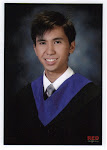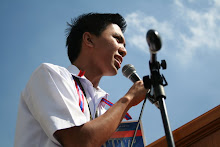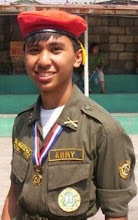INTRODUCTION
On May 2010 the whole nation will vote for the new President. Automated election will be used as a method, for the first time in our history. New method of election as it may be, still, many old faces in the political arena will try to join the race to Malacanang Palace. The ousted President Estrada will try to make a comeback and the ousted Senate President Villar will join the race as well. Incumbent Vice President deCastro is making a little bit of noise now that the election is near (why only now?). The leader of the Judicial department Honorable Puno is testing the waters if he can make a giant leap from the Judiciary to the Executive department. Many more are aspiring…in this country almost all “politicos” wants to be the President. Some of those “politicos” who are not so popular yet for the presidential race will vie for a senate seat. The unpopular incumbent President Gloria Arroyo made a statement that she may run for a congressional seat. Many more happenings may still uncover as the nation waits for the coming of May 14, 2010.
As I see these moments unfold from my very eyes through my television set, all I can do from the comfort of my sofa is to sigh. “Magulo ang pulitika ng Pinas.” Even foreign Nations will agree.
WHAT IS THE ROLE OF THE CHURCH ON NATIONAL PROBLEMS?
The Election Code prohibits heads or superiors of religions from coercing or intimidating their followers in the choice of candidates. Experts say this is so because of the Constitutional mandate of the “separation” of Church and the State. A mandate that is impliedly saying that Priests, Pastors, Imams and other religious leaders has nothing to do with the election so we should not take their opinion on who to vote. I may not yet be an expert in the law now but I believe that such thought is a gross misunderstanding of the principle of the separation of Church and State.
The “separation” came into being to protect the Church from the undue intrusion by the State, not vice versa. The principle doesn’t mean that the Church will just let everything happen in the political realm and practice a “hands off” attitude for it is outside of its jurisdiction. It doesn’t mean that the Church will have nothing to say on the conduct of the government or the quality of our public servants. Or that a spiritually matured Pastor or Priest may not influence another’s vote like anybody else.
It simply means that the State shall not try to run the Church’s business and vice versa. Elections must be conducted by the State and not by Church of course, and no religion may require members to show him his filled ballot before dropping it in the ballot box. Coercion violates the freewill of a human being, and must be forbidden anywhere.
In my personal opinion, although the Church and the State are independent from each other, they are joined together by a same subject: man. The people whom the State wants to be employed, educated and be protected from the A(H1N1) are the same people whose souls the Church wants to save.
The State sees me as a citizen but to the Church I am a man and we don’t need a PhD in Philosophy to know that a man is more than a citizen. The citizen pays the BIR or tax evades it, votes “politicos” or be the “politico” to be voted upon, but he is a man who worships his God and goes to Heaven or hell afterward. Church and State serve the same person, they cannot be truly separated.
SHOULD THE CHURCH TELL THE FAITHFUL WHO TO VOTE OR WHO MUST NOT BE VOTED ON 2010?
The answer is usually no, but this becomes a yes whenever the fundamental rights of man or the salvation of souls require it. At a time when many politicians are propagating platforms which are anti-life, anti-morality and anti-Church? The Church does not only have the right but also an obligation to propose the certain types of men should be rejected from one’s ballot.
But as a rule, Christians, the most numerous in the nation, does not involve itself into partisan politics. The religion “Iglesia ni Cristo” (INC) however believes that members must exercise unity in the choice of candidates. Those who oppose the belief will certainly will not be a part of the INC, they should be free to leave the fold, if they are members already; they would probably violate it, if they stayed. Such belief is already a part of the INC doctrine. That is what freedom of religion is all about.
I believe religious organizations have a right to be involved in partisan politics whether they practice it or not. The Church has a right and a duty to perform in this chaotic nation, form the Christian conscience of all, and lead them in defending Christian values, even after the most unlikely people have been cooped, degraded or silenced.
Churches must deal with national problems if they are to be faithful with their task. If the sovereign God is concerned not only with spiritual matters but also even from the physical realm of man – food, clothing, shelter even the government. God is Sovereign above the State and all, things therefore He cannot be confined purely to spiritual things for He made the same world for which his Son Jesus gave his life. Churches cannot pretend to be blind and dumb in the face of poverty, exploitation and injustice. By their silence they are involving themselves to the injustice.
We, men in the eyes of the Church and citizens in the eyes of the state shall and must respect the laws and the Constitution, but in the event of conflict, our bias must be on the Lord’s side rather that man’s law. Let us all desire order but only to when it is balanced with the human aspiration for freedom, equality and the human dignity.





